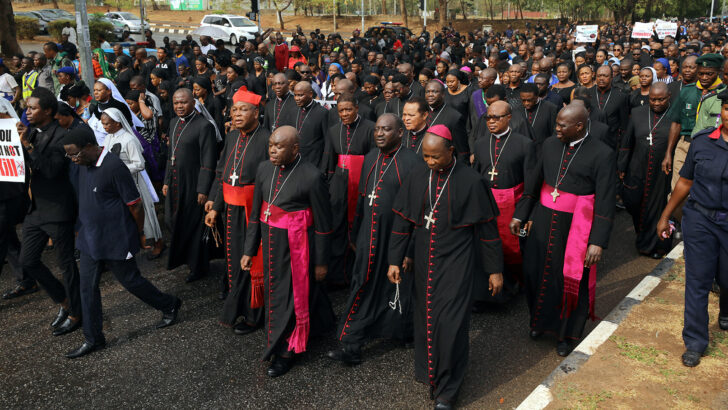Catholic bishops in Nigeria are calling for changes to an economic cooperation agreement between the EU and Africa, claiming it would force African nations to adopt policies on sexuality, abortion and gender contrary to their social, cultural and religious values.
“The agreement looks innocuous and attractive on the surface, but underneath it is carefully blended with post-modern secularistic ideologies that significantly undermine the moral, cultural and religious beliefs of Nigerian citizens,” the country’s bishops said in a July 12 statement.
The “Samoa Agreement” is a framework for cooperation among EU members and 79 Africa, Caribbean and Pacific nations, all together totalling a population of roughly two billion people. It establishes six priority areas, including human rights, democracy and governance, peace and security, human and social development, inclusive, sustainable economic growth and development, environmental sustainability and climate change, as well as migration and mobility.
In a position paper titled ‘Threats to the Sovereignty and Values of Nigeria in the Samoa Agreement’, issued July 12, the Catholic Bishops Conference of Nigeria (CBCN) claimed that while the agreement offers appealing benefits, its language conceals hidden ideologies that not only contradict Nigeria’s values but also pose a threat to the nation’s sovereignty.
They complained that the agreement “gives international law status to sexual orientation and gender identity, comprehensive sexuality education, and abortion through its prolific reference to gender approaches and the phrase ‘sexual and reproductive health and rights’”. Without a glossary of terms, the bishops said, signatories may interpret these concepts differently, potentially posing challenges during implementation. They insisted that “gender” is no longer “an innocent term”.
“There are over 110 genders that would claim a stake in the term gender equality,” the bishops claimed, and asserted that by signing the agreement, Nigeria will have to ensure that gender perspective is systematically mainstreamed across all policies and programs.
Nigeria will also have to foster gender-sensitive teaching and learning materials, as well as support universal access to sexual and reproductive health and rights (SRHR), they said. They said such an agreement could lead to the erosion of Nigeria’s sovereignty.
Catholic activists under the umbrella organisation Citizen GO Africa have claimed the language in the document also seeks to promote gay relationships. “The reference to ‘sexual and reproductive health and rights’ in these articles is particularly contentious, as it has been associated with promoting LGBT rights, sexual orientation and gender identity, which are sensitive issues in Nigerian society,” they say in a July 9 petition calling on Nigeria to withdraw from the agreement. The bishops are urging the Nigerian government to either seek amendments to the Samoa Agreement, or to withdraw from it altogether. They said if the EU turns down such an amendment, then Nigeria should follow the footsteps of South Africa and withdraw from it.
“A precedent has already been set by South Africa, which withdrew from the Cotonou Agreement in 2023,” the bishops said. The reference is to a 2000 agreement between the EU and African, Caribbean and Pacific nations, from which South Africa withdrew in 2022.


 Prelates lead a protest in Abuja, Nigeria, over unending killings of Nigerians. Photo: CNS/Afolabi Sotunde, Reuters
Prelates lead a protest in Abuja, Nigeria, over unending killings of Nigerians. Photo: CNS/Afolabi Sotunde, Reuters 